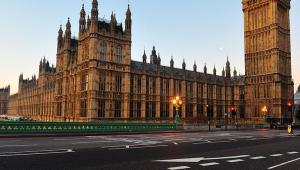Trade bodies, charities and think-tanks said bringing the pot for building ‘affordable’ homes up to nearly £9bn was a “first step towards tackling Britain’s housing crisis”.
Lindsay Judge, senior policy analyst at the Resolution Foundation think-tank, said: “The commitment of an extra £2bn for affordable and social housing is a very welcome first step towards tackling Britain’s housing crisis.”
But she warned: “The size of the challenge is huge.”
“Today’s announcement could mean a further 5,000 homes a year. That is welcome but it’s equally clearly more action will be needed.”
Polly Neate, chief executive of the charity Shelter, said: “The reality is that with over 1.2 million households on waiting lists already, this is only a fraction of the long-term investment required. It will need to be the start, rather than the end.”
Chief executive of the Chartered Institute of Housing Terrie Alafat said the announcement was “certainly an important step in the right direction but we still need to do more if we are to finally build the number of truly affordable homes we need”.
Most analysts accept the figure that 250,000 homes a year are needed for the next 25 years in the UK to reach need. The figure given by economist Kate Barker in her review of housing supply for the government in 2004.
Alafat also said it was “crucial” to know the details of exactly how these new homes will be funded and just how many will be for the lowest social rents.
May told the conference in Manchester today that her party would “in those parts of the country where the need is greatest, allow homes to be built for social rent, well below market level”.
The Affordable Homes Programme – which will now be nearly £9bn – allows the delivery of rented ‘affordable’ homes at no more than 80% of the local market rent.
The prime minister in her speech also said that councils would be encouraged to build for the cash – as well as housing associations.
Chief executive of Localis think-tank Liam Booth-Smith pointed out: “The majority of local government is not set up for the large-scale construction of housing anymore.”
He highlighted that local authorities built just 1,490 homes last year.
“There is little evidence to suggest there is the capacity, resource or expertise for them to build at a scale or pace that would meet demand,” he said.
Booth-Smith called for a “fundamental shift” in the financial model for councils, more powers over the compulsory purchase of land and a relaxation of Housing Revenue Account borrowing rules.
Chair of the Local Government Association Lord Porter echoed this. “The only way councils will be able to invest in housing that meets the needs of communities in every town and city across the country is if they are given genuine powers to invest in housing,” he said.
He said councils should be able to borrow more to invest in council housing, keep 100% of Right to Buy receipts and have certainty over future rents.
Campbell Robb, chief executive at the Joseph Rowntree Foundation, said: “The prime minister must press on with a bolder programme to help people who are just about managing.
“This means lifting the freeze on benefits and tax credits, ensuring families can keep more of what they earn under Universal Credit and using the industrial strategy to boost wages, productivity and training in left behind parts of the economy and country.”
Jon Trickett, Labour’s shadow minister for the cabinet office, said May’s housing pledge was a “watered down versions” of Labour's idea.
David Orr, chief executive at the National Housing Federation, said the commitment would “take the brakes” off the housing association sector and “enable it to unleash its full potential”.











